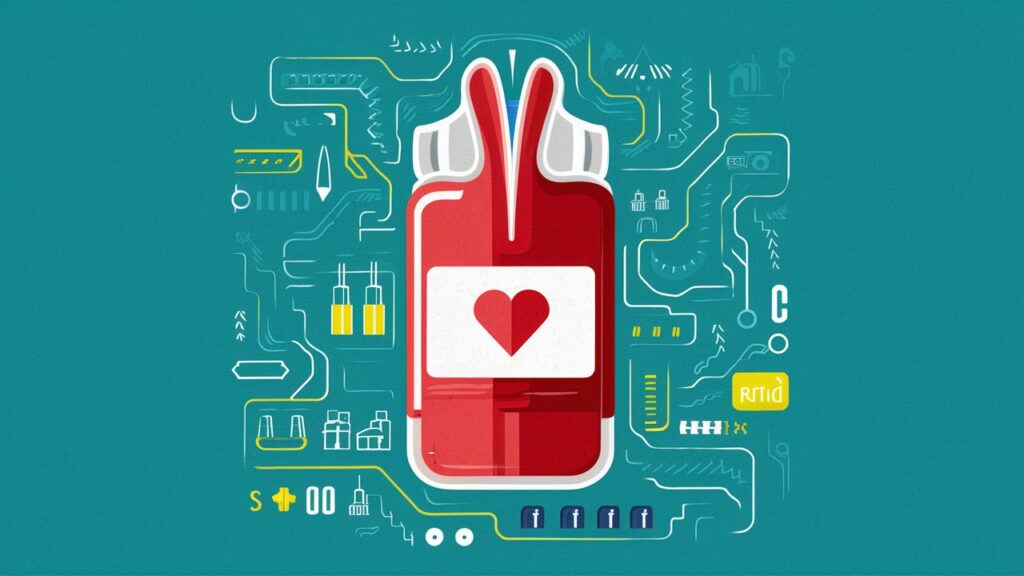In the realm of healthcare, ensuring the right blood reaches the right patient is critical. Blood transfusions, though life-saving, carry inherent risks if not managed properly. Mistakes in blood matching can lead to severe consequences, including fatal reactions. Enter RFID blood tracking systems—an advanced solution that significantly enhances patient safety and improves inventory management.
The Importance of Accurate Blood Tracking
Blood transfusions are common procedures in hospitals worldwide, but they require meticulous attention to detail. Traditionally, manual tracking methods have been prone to human error, resulting in mismatches and inefficiencies. RFID (Radio Frequency Identification) technology offers a reliable alternative, automating the documentation and monitoring of blood from donation to transfusion.
How RFID Blood Tracking Works
RFID blood tracking systems, like iRISecure – Blood Tracking, use tags and sensors to monitor blood bags throughout their lifecycle. Here’s how the process typically works:
- Tagging and Registration: Each blood bag is tagged with an RFID label containing essential information such as blood type, donation date, and expiration date.
- Real-Time Monitoring: RFID readers placed at strategic points (storage, transport, transfusion areas) capture data from the tags, providing real-time visibility into blood inventory and movement.
- Automated Alerts: The system generates alerts for critical events, such as impending expiration dates or prolonged exposure to temperatures outside the safe range.
- Data Integration: RFID systems seamlessly integrate with hospital information systems (HIS) and electronic medical records (EMR), ensuring accurate documentation and traceability.
Benefits of RFID Blood Tracking
Increased Patient Safety
The primary benefit of RFID blood tracking is enhanced patient safety. By automating the documentation process, the system reduces the risk of human error. Real-time alerts ensure that blood is used within safe time limits, and accurate tracking prevents mismatches.
Improved Inventory Control
RFID technology provides a comprehensive view of blood inventory across the hospital. This visibility helps healthcare providers maintain optimal stock levels, reduce waste, and avoid shortages. Advanced analytics can predict future needs based on historical usage patterns, further streamlining inventory management.
Elimination of Manual Data Entry
Manual data entry is not only time-consuming but also error-prone. RFID blood tracking systems eliminate the need for barcode scans or keyboard entries, ensuring that all item-level details are accurately captured and associated with the correct patient.
Robust Analytics
The data collected by RFID systems offers valuable insights into blood management processes. Hospitals can track the frequency of blood use, monitor the time taken for blood to move between checkpoints, and hold staff accountable for following proper workflows. These insights drive continuous improvement in blood management practices.
Seamless Integration with EMR and HIS
Integration with existing hospital systems is crucial for efficient operations. RFID blood tracking systems like iRISecure – Blood Tracking work seamlessly with popular EMR and HIS platforms such as Cerner, EPIC, and Meditech. This integration ensures that blood transfusion data is accurately recorded in patients’ medical records, enhancing overall patient care.
Case Study: Success in Action
Consider the implementation of iRISecure – Blood Tracking at a leading healthcare institution. By adopting RFID technology, the hospital reduced blood wastage by 20%, ensured 100% traceability of blood products, and significantly lowered the risk of transfusion-related errors. The system’s automated alerts and real-time inventory management capabilities transformed the hospital’s blood management process, leading to better patient outcomes.
Conclusion
In an era where patient safety is paramount, RFID blood tracking systems offer a robust solution for managing blood inventory and ensuring accurate transfusions. By automating documentation, providing real-time visibility, and integrating seamlessly with hospital systems, these technologies enhance patient safety and operational efficiency. As healthcare continues to evolve, adopting advanced solutions like RFID blood tracking will be crucial in delivering high-quality care.
No related posts.

